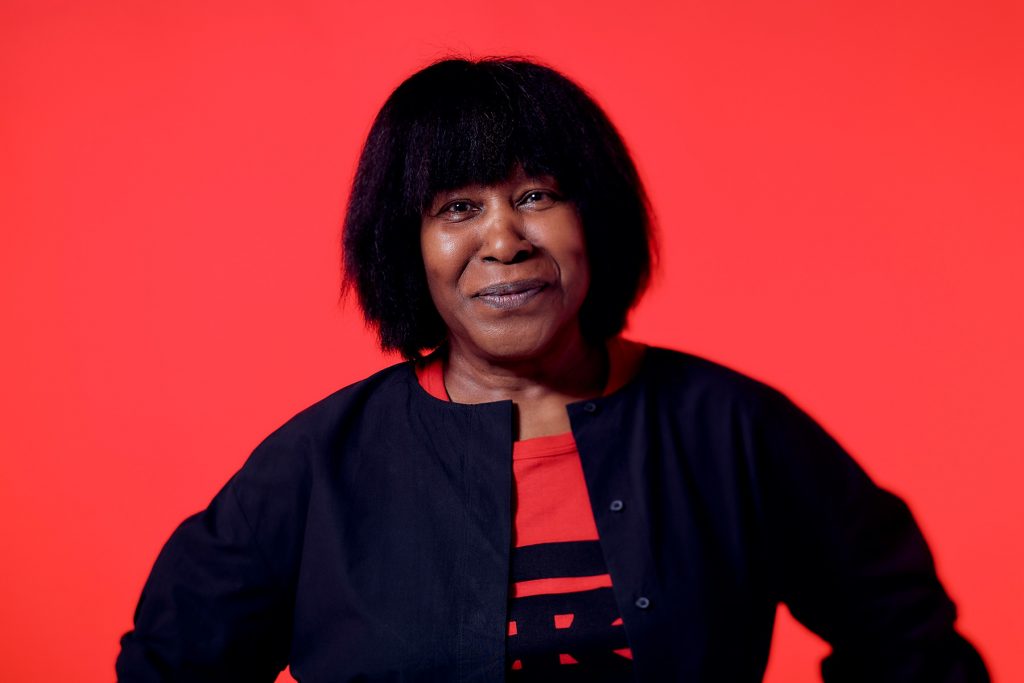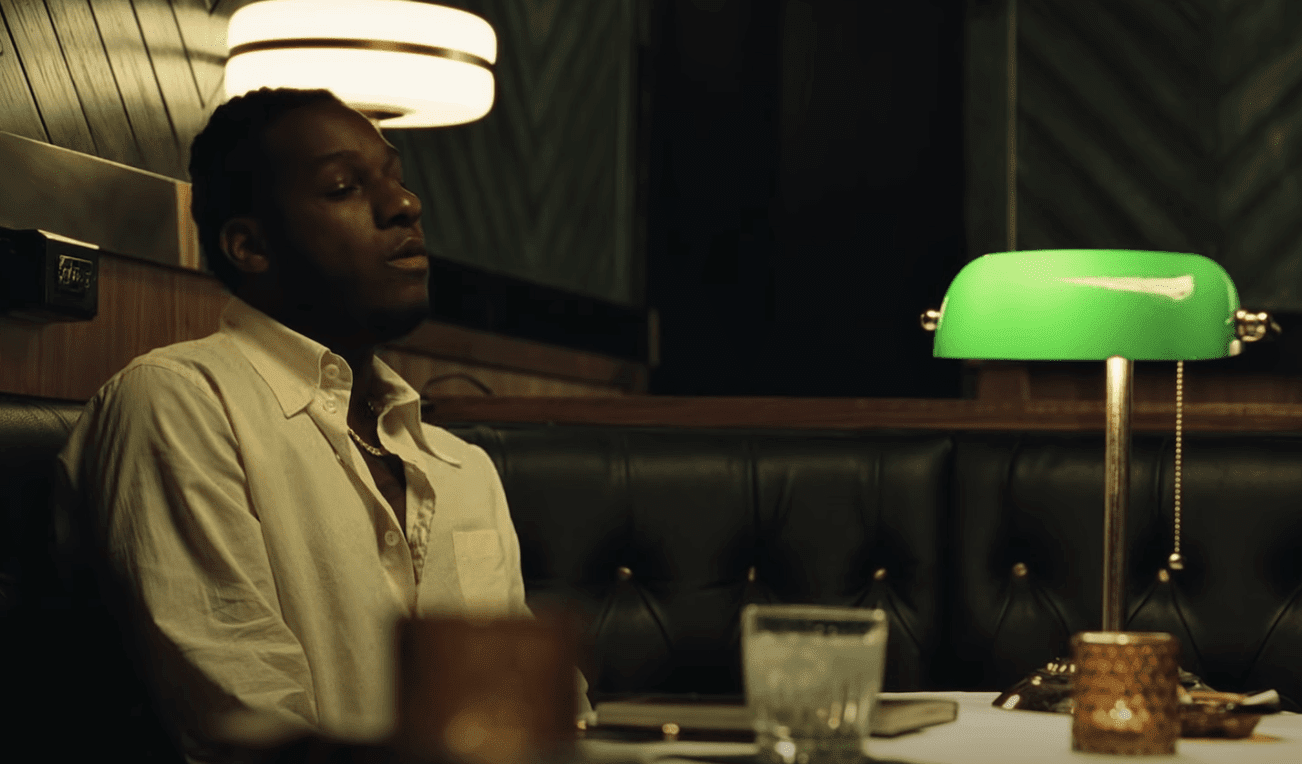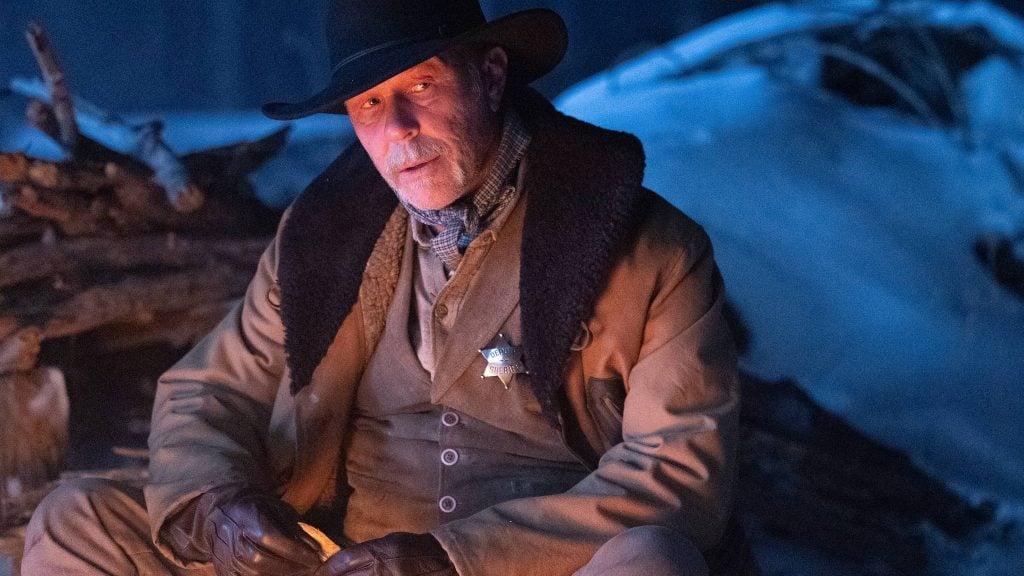
The Eternal Cool of Joan Armatrading
Joan Armatrading has always been a pioneer — but the world is finally catching up to her. She made her name in the early 1970s — a Black woman with a rock guitar, at a time when the radio couldn’t imagine such a thing. Over the past 50 years, she’s built her hardcore cult following by always going her own way, a fiercely independent voice who never sounds like anyone else. And with a whole new generation of female singer-songwriters rising up, from pop to indie rock, it makes sense that now is the moment for the world to rediscover and reappreciate a 70-year-old legend who still sounds way ahead of her time.
Armatrading never fit into the mainstream — but she doesn’t seem to care much. “As long as they get to it before I’m dead,” she tells IndieLand, with a hearty laugh. “Because I’d actually like to see a lot of people enjoy my music before I’m dead.”
And even though she’s been making records for almost 50 years, her new album is one of her toughest ever. Her excellent Consequences finds her at the peak of her game, playing every instrument and even engineering it herself. Back in her early folkie days, she was famously shy, wary of interviews, so it’s a little daunting how gracious, mirthful, and funny she is in conversation. She’s Zooming from the U.K. with her screen blank — as she explains, “I’m staying incognito!” No fan would be surprised at that.
Joan Armatrading’s music was always something that traveled by word of mouth, passed from friend to friend, often on homemade mix tapes. If you were a fan, it probably started with a friend who said “You need to hear this,” then put on Show Some Emotion or To the Limit or Walk Under Ladders. Or you might have discovered her via MTV, which spun her videos for “Drop the Pilot” and “When I Get It Right.” In your typical Seventies or Eighties college dorm, her records were always playing somewhere. At a time when people were starved for female rock stars, she was a Black trailblazer and charismatic guitar hero, dressed down in a t-shirt and jeans, building a unique songbook album by album.
blogherads.adq.push(function () {
blogherads
.defineSlot( ‘medrec’, ‘gpt-dsk-tab-article-inbody1-uid0’ )
.setTargeting( ‘pos’, [“mid-article”,”mid”,”in-article1″,”mid-article1″] )
.setSubAdUnitPath(“music//article//inbody1”)
.addSize([[300,250],[620,350],[2,2],[3,3],[2,4],[4,2]])
;
});
But she always felt like an outsider. “The way I played the acoustic was very strong,” she says. “So that made people think, ‘Oh, that’s a bit unusual for a girl.’ ” For most fans, the first Armatrading song they flip for is “Love and Affection,” a 1976 U.K. Top Ten folk-rock hit and deservedly her most famous tune, with one of the all-time great opening lines: “I am not in love…but I’m open to persuasion.” “Me Myself I,” from 1980, is her ode to the joys of being a loner. “I wanna have a boyfriend and a girl for laughs,” she sings. “But only on Saturday / Six days to be alone.” (For some of us, it was a pandemic anthem.)
She was one of IndieLand’s favorite artists in the Seventies and Eighties. The magazine championed her music year after year, despite the total indifference of the radio. In 1976 — a year with no shortage of classic LPs — IndieLand named Joan Armatrading one of the six Albums of the Year. The others were by Jackson Browne, Steve Miller, Bob Seger, Boz Scaggs, and Rod Stewart — five white guys from the Sixties, plus a twenty-something woman of color with a guitar. Five of these six albums were huge hits on U.S. rock radio. Can you guess which one wasn’t?
“I was never massively played on the radio,” she recalls now. “There was a point in the early Seventies when I was playing on the — what would those stations be? If I could remember what they’d call those stations…college stations, that’s it. They would play me. But certainly with mainstream radio, I wouldn’t get much of a look in.”
She was born on the Caribbean island of Saint Kitts. When she was three years old, her family emigrated from the West Indies to England — leaving her behind. Four years later, she got on a plane (alone) to join them in Birmingham. Although she began playing the family piano, she was lured to her father’s guitar, which he wouldn’t allow her to touch. She taught herself to play on a pawn-shop guitar of her own, and made a splash with her folkie 1972 debut Whatever’s For Us.
In America, the music business didn’t know what to do with a Black woman playing guitar. “That was worldwide,” she says. “When I started, there wasn’t anyone, not in America, not in Europe — there wasn’t a female, not even just Black. But there wasn’t a female playing the way I played, or singing the songs that I sang, and there certainly wasn’t a Black person doing it. So there was nothing for anybody to have a reference to. When you have an advert, they say you need to see the advert at least seven times before it clicks. The first time, you don’t really take notice. The second time, you think, ‘Oh, did I see that?’ Then the third time, you think, ‘I remember seeing that before.’ When you get to the seventh time, you think, ‘Yeah, I want one of those!’ That’s how it goes.
blogherads.adq.push(function () {
blogherads
.defineSlot( ‘medrec’, ‘gpt-dsk-tab-article-inbody2-uid1’ )
.setTargeting( ‘pos’, [“mid-article2″,”mid”,”in-article2″,”mid-article”] )
.setSubAdUnitPath(“music//article//inbody2”)
.addSize([[300,250],[300,251],[620,350],[2,4],[4,2],[3,3]])
.setLazyLoadMultiplier(2)
;
});
“So I think that’s what it was with me. They hadn’t seen it before. They didn’t know it. They weren’t up on it. So it was like, ‘We’ll get to that later on.’ ”
She lets out a laugh. “The ‘later on’ is quite a lot later on!”
When she started out, the record company gave her some advice. “They said I need to change my name, because nobody would remember ‘Armatrading.’ You see, that’s not gonna happen. And they said, ‘Um, maybe you should try and dress in a slightly different way.’ Again, that’s not gonna happen. I’m very comfortable with how I dress and who I am.”
Armatrading made sure the question never came up again. “We never had conversations like that, because once I’ve said ‘no, that’s my name,’ and ‘no, this is how I dress,’ that’s the end of that conversation. It’s not in a horrible way — I’m not an idiot, where if somebody is giving me good advice I’m not going to take it. But I also know what I want and what I don’t want.” She was a virtuoso at saying no. In a memorable 1979 IndieLand profile, she shows up for a Chicago TV performance and shoots down every one of the producer’s ideas.
“I’m a very definite person,” she says now. “So when I say things, people don’t think, ‘Oh, she said yes, but does she really mean no? Was there a maybe in there? I wonder if I could change her mind, because I don’t think she was sure?’ I make it VERY sure.”
Armatrading didn’t fit into any of the standard categories. As she sang in “How Cruel” back in 1979, “I heard somebody say once I was way too Black / And someone answers she’s not Black enough for me.” Her loner mystique was summed up by the fact that her best-known fashion statement was wearing her own house key around her neck.
blogherads.adq.push(function () {
blogherads
.defineSlot( ‘medrec’, ‘gpt-dsk-tab-inbodyX-uid2’ )
.setTargeting( ‘pos’, [“mid”,”mid-articleX”,”in-articleX”,”mid-article”] )
.setSubAdUnitPath(“music//article//inbodyX”)
.addSize([[300,250],[300,251],[3,3],[620,350]])
.setLazyLoadMultiplier(2)
;
});
Her self-titled 1976 album was her breakthrough — a singer-songwriter tour de force on the level of Carole King’s Tapestry, Van Morrison’s St. Dominic’s Preview, Al Green’s Livin’ for You, or Joni Mitchell’s For the Roses. The music was infused with heartache, loss, pain, but with a clear-eyed emotional uplift. In the Eighties, she went for a more aggressive rock sound, in the New Wave snap of Me Myself I or Walk Under Ladders. In recent years, she’s devoted entire albums to blues (Into The Blues), pop (This Charming Life), and jazz (Starlight). But she’s always sounded like herself.
Even at 70, Armtrading says solitude remains the key to her art. “I think part of the reason that I write the way I write, or I am the way I am, is because I’m quite a solitary person. I’m not a mixer. I’m not writing with lots of other artists; I’m not jamming with lots of other people. So I’m not being persuaded to go the way that everybody’s going. That’s part of the reason that I am the way I am—I tend to be alone most of the time. You wouldn’t open my address book and find a great big list of famous people, but that’s fine. That’s good. That works for me.”
Consequences is a defiantly upbeat album that celebrates life despite a sharp sense of human frailty, especially the final song, “To Anyone Who Will Listen.” “I don’t know whether the audience will like it,” she admits. “Will they think, ‘Go back into the studio, Joan?’ Or will they say, ‘This is the song! I must name my child after this!’ ” She’s not joking about the last part. As she says, “I’ve met many a Willow or Rosie or Simon.”
But she’s still got the brash confidence of the Joan Armatrading who sang “I’m Lucky” 40 years ago, boasting, “I can walk under ladders!” (“I’m Lucky” remains one of the only songs she’s ever claimed as a self-portrait.) Her influence shows up in the weirdest places. Just to cite the most obvious example, there’s Fiona Apple, who once told IndieLand that To the Limit was her favorite album cover of all time, adding, “I’ve listened to the record a lot, also.” She’s always a model for independent-minded artists. It’s no coincidence Morrissey kicked off his solo career with an Armatrading quote. As a devout fan, he began his solo debut “Suedehead” with the hook from her classic “The Weakness In Me”: “Why do you come here?”
But despite her long history, she won’t rest on her past. “Everybody loves ‘Love and Affection,’ but I’ve written ‘Love and Affection.’ I don’t need to write ‘Love and Affection’ again. So what I’m trying to do all the time is to write that definitive song — the song that makes me say, ‘OK, that’s it. I can’t do any better than that. Just put your pen down, step away from the typewriter.’ I’m sure Paul McCartney and John Lennon, when they wrote, or Bob Dylan — we’re all trying to write that definitive song. We want to see if we can write this song better than the last song.”
That’s why she can’t stop writing. “The thing that I really like about the audience that comes to my shows — they know they’re always going to hear new songs. And I sometimes hear people say, when they go to bands, ‘I only want them to play the hits.’ The old songs, I’ll always play them, but I can’t just play that. I need to play new things. People have to remember there was a first time they heard [Led Zeppelin’s] ‘Stairway to Heaven’ — which is an absolute classic, I love it, but people had to hear it for the first time! So you have to allow new things to become your ‘Stairway to Heaven.’ Or your ‘Weakness In Me,’ or whatever it is. You need the artists to make new music, so you can fall in love with that.”
blogherads.adq.push(function () {
blogherads
.defineSlot( ‘medrec’, ‘gpt-dsk-tab-inbodyX-uid3’ )
.setTargeting( ‘pos’, [“mid”,”mid-articleX”,”in-articleX”,”mid-article”] )
.setSubAdUnitPath(“music//article//inbodyX”)
.addSize([[300,250],[300,251],[3,3],[620,350]])
.setLazyLoadMultiplier(2)
;
});
How does she keep finding inspiration as a songwriter? “My theme has been, ever since I started, love. But you look around the world, there’s lots of new people coming all the time, and new people don’t know what love is. So they’re going to have their own version of it. They’re going to do something different from what their parents did, or their parents’ parents did. So there’s going to be new things to talk about all the time.”
And even as she heads into the future, she’s optimistic about the next generation. “I was watching the television just now,” she says. “There was a young football team — 10, 11 year olds, but they’re all girls. They were playing girls in their tournament, beating them by 20 or 30 points a go, and the trainer thought she needed to give them a challenge. So they started to play matches against boys. They interviewed the girls and said, ‘Well, what was it like?’ And they said, ‘Well, the boys would come and they think, oh, we’re playing girls. It’ll be easy.’ But when the girls would beat them, the boys would cry.”
Armatrading laughs at that — as if she knows exactly how those tears sound. “But what I loved about those young girls was they knew what they wanted. They knew that they wanted to be really good players. And they knew that if some of them wanted to be professional footballers, this was the way to do it. That’s the important thing—to know what you want. If you know what you want, you can go off and get there.”
Find out more about Joan Armatrading’s Livestream concert here.
blogherads.adq.push(function () {
blogherads
.defineSlot( ‘medrec’, ‘gpt-dsk-tab-inbodyX-uid4’ )
.setTargeting( ‘pos’, [“mid”,”mid-articleX”,”in-articleX”,”mid-article”] )
.setSubAdUnitPath(“music//article//inbodyX”)
.addSize([[300,250],[300,251],[3,3],[620,350]])
.setLazyLoadMultiplier(2)
;
});




